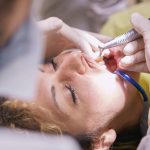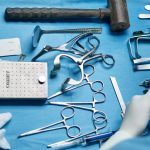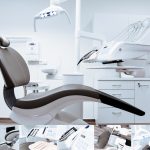
Dental X-rays are a common, yet sometimes overlooked, aspect of maintaining oral health. Like any medical procedure, it’s essential to understand the reasons behind their use and the safety measures involved. In a world increasingly conscious of healthcare practices and radiation exposure, this knowledge can be empowering.
Understanding Dental X-Rays
Dental X-rays allow dentists to see beneath the surface of your teeth and gums, providing valuable information that aids in diagnosing problems such as tooth decay, impacted teeth, and gum disease. They play a crucial role in preventive dentistry and are indispensable tools for many dental professionals.
Why Are Dental X-Rays Necessary?
-
Diagnosis: X-rays help uncover issues that may not be visible during a regular oral exam.
-
Prevention: By revealing hidden problems, dental X-rays allow for early intervention.
-
Planning: Many dental treatments, like braces, implants, and extractions, require X-rays for planning.
Assessing the Safety of Dental X-Rays
-
Radiation Exposure: Modern dental X-rays emit very low levels of radiation.
-
Protective Measures: Lead aprons and thyroid collars are often used to minimize exposure to vital organs.
-
Frequency: Dentists recommend X-rays based on your needs, reducing unnecessary exposure.
Exploring the Types of Dental X-Rays
Dental X-rays come in various forms, each serving a unique purpose in dental diagnostics. Below are some of the most commonly used types:
Common Dental X-Ray Types
-
Bitewing: Helps in detecting tooth decay between teeth and changes in bone density caused by gum disease.
-
Periapical: Provides a full view of the tooth from crown to root to see the tooth’s structure and supporting bone structure.
-
Panoramic: Offers a broad view of the entire mouth, including jaws, teeth, sinuses, and temporomandibular joints.
How Often Should You Get Dental X-Rays?
The frequency of dental X-rays depends on individual health needs and history. A patient at higher risk for dental diseases might require X-rays more frequently than one with a minimal history of dental issues.
Factors Influencing X-Ray Frequency
-
Age: Younger patients may need more frequent X-rays to monitor growth and development.
-
Dental History: Past dental work and recurring problems can necessitate more frequent imaging.
-
Current Health: Conditions like gum disease or dry mouth can impact how often you need X-rays.
What Benefits Do Dental X-Rays Offer?
Dental X-rays are more than just diagnostic tools; they enable dentists to develop a comprehensive understanding of a patient’s dental health.
Advantages of Dental X-Rays
-
Comprehensive Diagnosis: X-rays provide detailed views of the dental structures.
-
Treatment Success: Accurate images lead to more effective and customized treatments.
-
Progress Monitoring: X-rays are used to monitor the progression of dental treatments over time.
When Visiting the Dentist
During your visit to the dentist, especially if you’re at a dental practice in Columbus, GA, you can expect a thorough examination that may include X-rays. The dentist will consider your dental history, current symptoms, and overall oral health before suggesting the best course of action.
The Breadth of Dental Services Available
Dental services encompass much more than just routine check-ups and fillings. For those looking to improve the aesthetics of their smile, cosmetic dentistry for a radiant smile includes options such as veneers, bonding, and, notably, teeth whitening services.
Caring for Your Teeth Between Visits
While dental professionals play a significant role in maintaining oral health, personal daily care is equally crucial. Family dental care encompasses a variety of practices designed to keep the entire family’s teeth healthy and prevent issues such as tooth decay and gum disease.
Why Regular Dental Visits Matter
Visiting your dentist regularly for a dental exam and cleaning is key to maintaining good oral health. These visits can significantly contribute to the prevention of diseases and long-term complications.
Elements of a Routine Dental Check-up
-
Professional Teeth Cleaning: Removes plaque and tartar that can’t be brushed away at home.
-
Oral Health Check: The dentist will perform a detailed assessment of your teeth and gums.
-
Consultation: Provides an opportunity to discuss any concerns or changes since your last visit.
Effective Dental Care Routine at Home
Home dental care is a vital part of maintaining dental health. Here, we’ll break down an effective dental care routine:
Essential Home Dental Care Practices
-
Daily Brushing: Brush twice a day with fluoride toothpaste to remove plaque.
-
Flossing: Floss daily to clean the spaces between your teeth that a brush can’t reach.
-
Diet: Consume a balanced diet and limit sugary snacks to prevent tooth decay.
Pediatric Dentistry and Your Child’s Oral Health
Children have unique dental needs, and pediatric dentistry focuses on providing comprehensive care for the dental health of children from infancy through their teen years.
Gum Disease Prevention and Management
-
Routine Cleanings: Helps in preventing the buildup of plaque that can lead to gum disease.
-
Education: Teaches good dental hygiene habits to maintain healthy gums.
-
Regular Check-ups: Allows for early detection and management of gum disease.
Considering Dental Insurance and Affordable Dental Services
Dental healthcare can be a significant expense, and dental insurance is one way to help manage the cost of treatments. Whether you’re interested in teeth whitening services or more complicated dental surgery services, it’s crucial to understand your coverage and look for affordable dental services.
Final Thoughts
Maintaining optimal oral health goes beyond brushing and flossing; it includes regular professional assessments and cleanings. Dental X-rays are a safe and indispensable part of this process, enabling dentists to diagnose and treat underlying issues effectively. Remember to embrace preventive dentistry by scheduling routine dental check-ups, and when in doubt, consult your dental professional for personalized dental hygiene tips and care options.
By investing in regular dental care routines and embracing the wide spectrum of dental services available, you can ensure the continued health and beauty of your smile.




















































